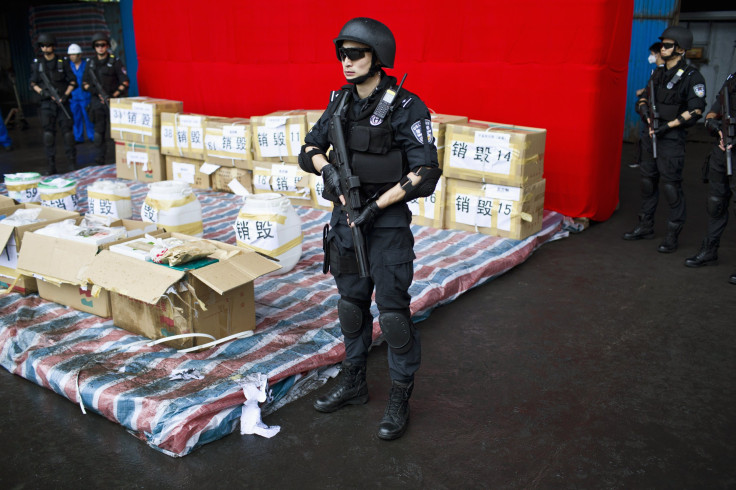China's Online Drug Trade Targeted In New Internet Company Crackdown Campaign

In the age of digitization, everything seems to be going online, including drug trafficking, apparently. In a bid to curb China’s online drug trade, the Chinese government announced Monday that the country’s biggest web and telecommunications companies have signed a new pact that vows “zero tolerance” when it comes to cracking down on illicit drug-related transactions.
The new policy is the brainchild of the Internet Society of China and nine other government agencies, including the national anti-drug commission and the Cyberspace Administration of China, and is the first regulation of its kind. Under it, Chinese Internet and telecommunications companies, such as China Mobile and China Unicom, can be held responsible for illegal transactions that use company services, giving an incentive for companies to crackdown themselves. More than 50 Chinese Internet companies have signed the agreement in addition to five courier services committed to the anti-drug policy, state-run Xinhua News Agency reported.
“Online communication, payment and delivery” can all be coordinated through these various services, Liu Yuejin, the deputy director of the China National Narcotics Control Commission said in a press conference. Liu added that online trafficking has quickly replaced traditional in-person smuggling, making it much easier to evade authorities for a long time.
“The Internet provides suspected drug criminals fast and covert access to drugs, residing in different provinces, they often communicate in an online chat room or use jargon in their posts, which have made it difficult for the police to identify them,” an unnamed police officer told the Global Times last week.
Illicit drug use has grown so much that China released the government’s first-ever official report on the state of drug trafficking and use, which came out last Wednesday. Officials used it to mention the success of some of their ongoing efforts to stem drug use and other areas that still need more attention.
Hu Minglang, the head of the anti-drug bureau with the Ministry of Public Security, told Xinhua that nearly 33,000 people have been caught for online drug-related crimes since the beginning of a greater drug crackdown campaign which began in April. Additionally, 832 websites and more than 5.7 million Internet accounts were shuttered for playing a role in drug-related crimes during the same time period.
During Monday's announcement, deputy director Liu said that a drug-free Internet environment should be considered a “common obligation” for all digital business operators and its users.
© Copyright IBTimes 2024. All rights reserved.












